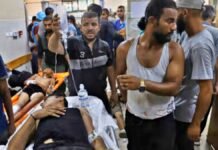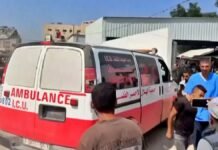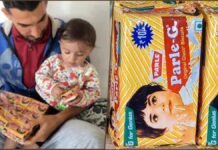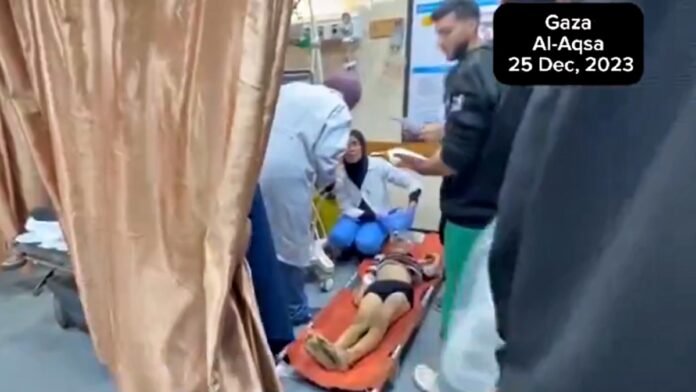
New Delhi: A team of World Health Organization (WHO) staff visited Al-Aqsa Hospital in Gaza on Monday, where they witnessed the devastating impact of the Israeli strikes on the Al-Maghazi refugee camp that killed at least 70 people, including many children, the night before.
The UN health agency chief Tedros Adhanom Ghebreyesus said on X, formerly Twitter, that the WHO team heard harrowing accounts from the health workers and the survivors of the explosions that destroyed three houses in the camp.
He said that one child had lost his entire family in the strike and that a nurse who was treating him had suffered the same fate. He also said that the hospital was receiving around 100 casualties from the blasts, far exceeding its bed capacity and staff resources.
“Many will not survive the wait,” he warned, calling for an immediate ceasefire to end the violence that has claimed more than 20,000 lives in Gaza since the war broke out on October 7.
The Israeli military said it was “reviewing the incident” and that it was “committed to international law including taking feasible steps to minimize harm to civilians”. It accused Hamas, the Islamist group that controls Gaza, of using civilians as human shields and launching rockets from residential areas.
The war erupted when Hamas launched an unprecedented attack on Israel, killing about 1,140 people, mainly civilians, and taking 250 hostages, according to an AFP tally based on Israeli figures. Israel has responded with a relentless military campaign that has targeted Hamas’s infrastructure, leaders, and militants, as well as civilian buildings and infrastructure.
‘UNACCEPTABLE SITUATION’
Sean Casey, a WHO Emergency Medical Teams coordinator who was part of the mission to Al-Aqsa hospital, described the heartbreaking scene of doctors trying to ease the pain of a dying nine-year-old boy named Ahmed, who had suffered severe head injuries from the shrapnel and rubble.
In a video shot inside the hospital, Casey said that Ahmed was being sedated to reduce his suffering as he was dying. He said that Ahmed was crossing the street in front of the shelter where his family was staying when the building next to him was hit by an Israeli strike.
“His brain matter was exposed. There’s nothing anybody can do for him. Like so many cases here, there isn’t capacity to manage complex neurological cases, complex trauma cases,” he said.
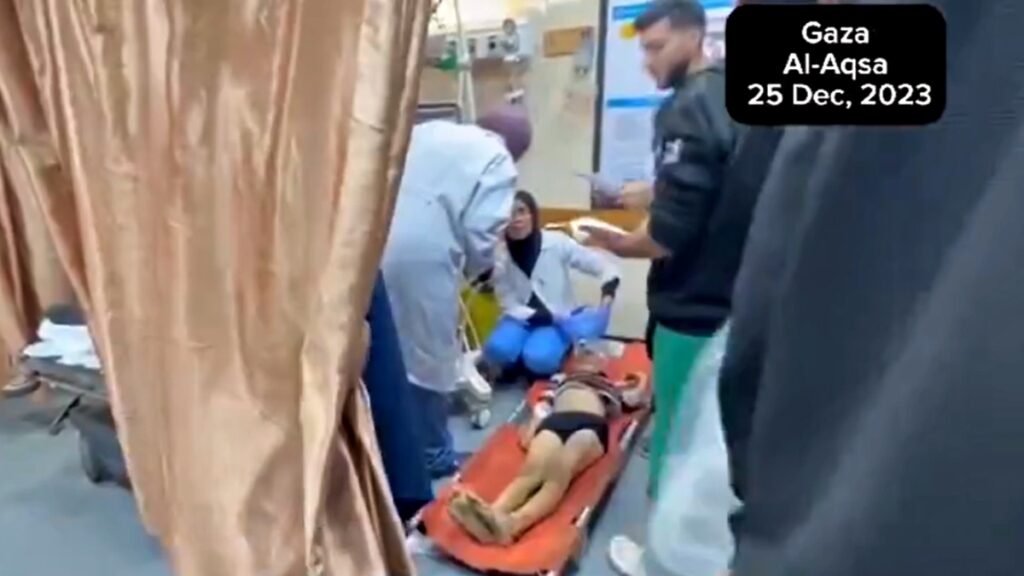
Casey said that only nine of Gaza’s original 36 hospitals were still partially functional and that the health system was on the verge of collapse. He urged the international community to not accept the situation and to demand a ceasefire.
“We as an international community should not accept that thousands upon thousands of people, children are being blown up, being killed while they’re crossing the street, while they’re sleeping in their beds,” he said.
“This is an unacceptable situation. This has to stop.”










































